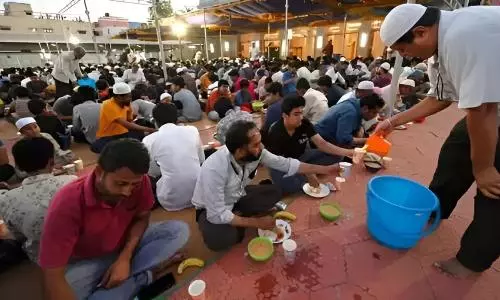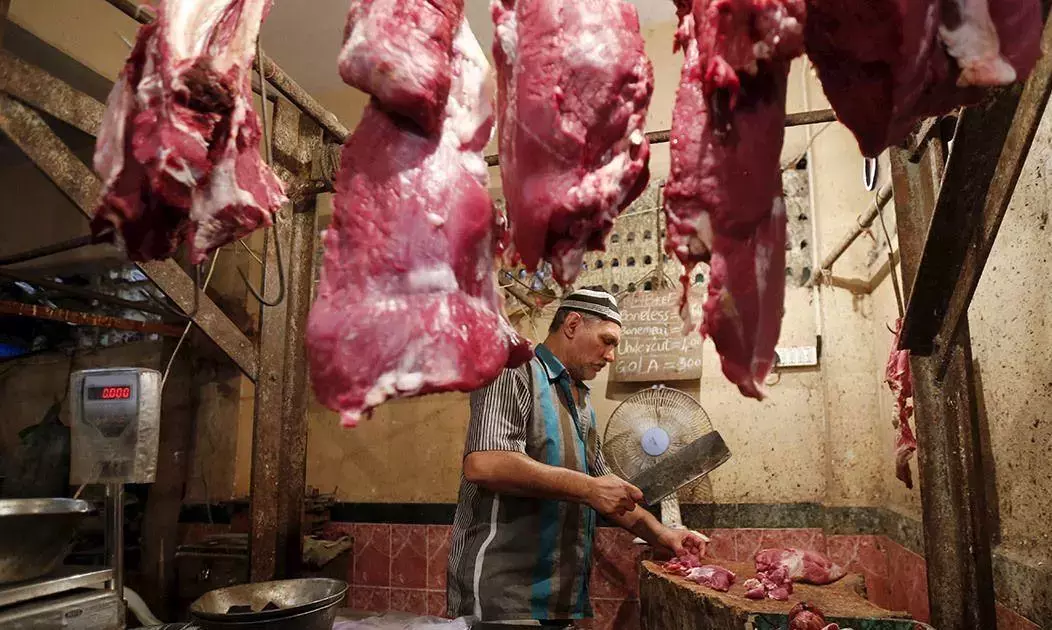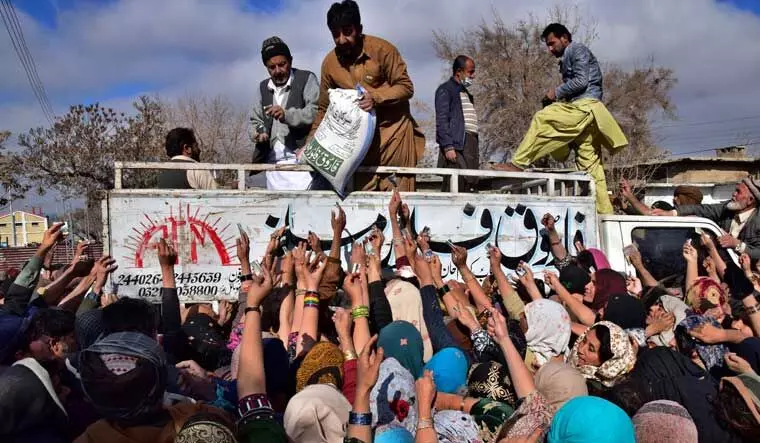
Inflation in Pakistan reaches 48-year high; imports held-up in ports
text_fieldsReuters photo.
Karachi: Pakistan's statistics bureau released data on Wednesday stating that the country is witnessing 48-year high inflation, worsening the crisis there. The International Monetary Fund is visiting the nation for urgent talks, Agence France-Presse reported.
In January this year, the year-on-year inflation was recorded at 27.55 per cent. This is the highest since May 1975. Thousands of containers of import were being held-up in Karachi port.
The country's economy is treading over a tightrope after being hit by a payments crisis as it tries to deal with high amounts of external debt. The country, the world's fifth-biggest population, only has money worth just three weeks of imports in the state bank, which is less than $3.7 billion.
An International Monetary Fund (IMF) delegation has reached Islamabad to make urgent talks with the government since the latter was avoiding a meeting with the former's tough conditions.
AFP reports that currently, the country is teetering under mounting pressure since the prospect of a national bankruptcy looms around, and no country has extended a friendly hand to offer a bailout.
The Pakistan government had relaxed reins on its currency so as to rein in a rampant black market in US dollars, but the move backfired, resulting in the currency plunging to a record low.
The state bank stopped issuing letters of credit, except for essential food and medicines.
In the country, public construction projects were stopped, textile factories were running only partially, and domestic investments fell.
A source from Karachi told AFP on Monday that the number of beggars has increased while those employed decreased.
AFP writes that it is a common pattern in Pakistan that most people in rural areas ply in poverty while more than two dozen IMF deals brokered goes broken over the decades.























